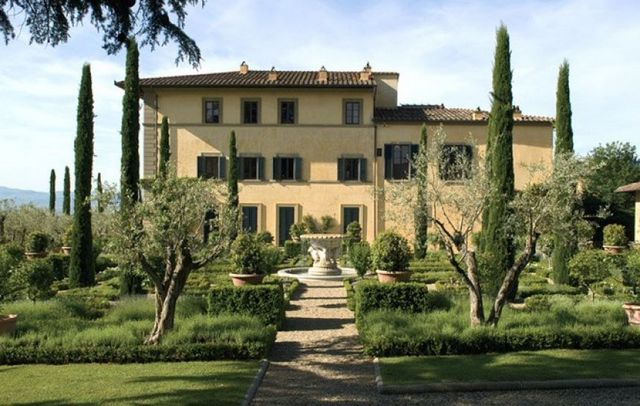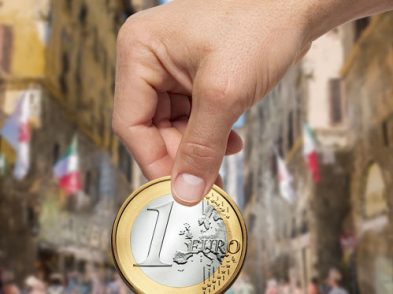A little villa in the countryside? An apartment in the city? A charming house in a medieval town? The real estate ads are irresistible. However, your dream of a home in Italy can quickly become a legal nightmare. Buying a property in Italy is something that no one should attempt without proper legal support. As this Q&A explains, even before making an offer or signing a contract you should have a legal advisor who can help determine your eligibility and protect you through the process.

Always seek legal advice before buying property in Italy
Q: Am I eligible to buy property in Italy?
A: It depends. According the reciprocity condition in article 16 of the civil code, non-EU citizens who stay in Italy for short periods or have a permit to stay in another EU member state can purchase property in Italy only if Italians are legally allowed the same type of transaction in the person’s home country. (Australians and Canadians, for example, face some restrictions because their countries’ restrictions on foreign investments in real estate.) If the person’s country of origin currently has a bilateral investment treaty with Italy, he or she may invest in any type of property, under the same rules applied to Italians, as may citizens of the European Union, Iceland, Liechtenstein and Norway, and non-EU citizens holding a valid long-term permit to stay in Italy for work, elective residency or family purpose. Get legal advice on your status before you start shopping.
Q: How can I ensure that what I see is what I am going to get?
A: Ask the right questions up front. Besides requesting documentation of important details of the physical condition of the property,ask your legal proxy to provide documentation of the civil records of the property. It is the buyer’s responsibility to determine, for instance, that the prospective seller is the actual (and only) owner of the property; whether there are liens or other burdens on the property, such as loans, bankruptcy procedures and mortgages; or if current ownership of the property was the result of a donation that could be revoked.
In addition, a legal advisor can help you determine whether the property is subject to restrictions related to the historical, artistic or archaeological value of the building or the area. These restrictions forbid certain renovations. Even moving a wall or creating (or closing up) a window or a door without authorization from the Soprintendenza per i Beni Architettonici e per il Paesaggio, part of the ministry of culture, could expose you to very severe fines.
Q: What documents must I sign?
A: If you are ready to make an offer, the real estate agent will ask you to sign a proposta di acquisto (purchase proposal). Often a pre-printed form signed by the prospective buyer, it indicates the price being offered and is usually accompanied by a good-faith deposit. If, after signing the proposta, you decide not to buy the property and do not have a valid reason for doing so, you will likely lose your deposit. If the seller reneges, the prospective buyer is entitled to double the amount of his or her deposit.
The compromesso (or contratto preliminare, preliminary contract) obliges both parties to sign the final contract. The compromesso stipulates the main elements of the transaction (sale price, address, number of floors, rooms, etc.) using data from the land registry, and it specifies the date of the final contract. The prospective buyer should have a lawyer or notary (see below) draw up the compromesso: he or she will be able to clearly detail the obligations and employ clauses that best protect both the parties.
In addition, in order to ensure maximum protection for the prospective purchaser, I often recommend registering the compromesso with the land registry, with the help of a notary. Registering the preliminary contract publicly “reserves” the property for the prospective purchaser, a step particularly useful when the advance payment is substantial or if there will be a long delay between the preliminary and final contract, as it reduces the chance that a dishonest seller could use the property as collateral for a loan or try to sell it to someone else.
Q: What is the role of the notary?
A. The signing of the final deed of sale and handover of the property happens in front of a public notary. The seal and the signature of the notary close the contract, and from that moment (unless differently agreed by the parties) the buyer is the new owner. As in most European countries with a civil law system, in Italy the notary is a public officer. The notary does not simply authenticate signatures but is responsible for the draft of the act of sale and must ensure that the transfer of property complies with very complex and detailed regulations. Before the sale is finalized, the notary must determine that there is a perfect correspondence between the property in the contract and that represented in the public registers and that the good faith of the buyer, notoriously the “weak party” of the transaction, is protected.
The deed, which is signed in front of the notary, is drafted in Italian, but if one party is not fluent in the language, on request the notary can have the deed translated by a certified translator; the translation becomes part of the public deed. Alternatively, a trusted Italian speaker, often your legal adviser, can be granted power of attorney and participate on your behalf in the public sale.
During the public sale, the notary collects the real estate transaction fees and the taxes. Afterwards, he or she has the deed entered in the land registry, registers the deed with the tax authorities and conveys payment of the relevant taxes.
Q: If I buy a property in Italy, does that get me a permit to stay?
A: Italy does not have the so-called golden visa: the purchase of a property is not in itself grounds for a permit to stay. But if you can prove that, along with meeting certain other conditions, you have stable and sufficient funds that allow you to stay in Italy without working, the fact that you own a property can ease the process of obtaining the elective residency visa.
Q:If I buy a house in Italy, what are my tax obligations?
A: As is so often the case in Italy, it depends. You must pay the property taxes to the Italian government annually. But the mere fact of having a property in Italy does not necessarily make you subject to Italy’s income tax system. Owning a house in Italy is, however, one of the parameters used to determine if Italy is the center of one’s interests therefore the ‘fiscal residency.’ If you spend the majority of the fiscal year (184 days) in Italy or if Italy is the center of your personal or professional interests, then you must declare your taxes in Italy. In other words, if a person has a family (including children who attend schools), a job, owns property, in Italy, or simply lives in Italy for 184 or more days of the year, it is likely that he or she will be considered a resident for the purposes of taxation and therefore be required to declare (and probably pay) taxes in Italy.
IN CONCLUSION: Investigate the market thoroughly. Obtain professional purchase assistance and keep in mind that buying a property is, together with paying your taxes, one of those activities that nobody, not even the savviest businessperson, should ever do without proper support in Italy. This is not an area in which to keep costs down. So before placing a binding offer, ask the opinion of an independent legal adviser that will help you to remember the key questions to ask to the seller or to your real estate agent.
Disclaimer
This information is intended as general advice only. Professional support should always be retained in these matters, especially if the prospective buyer is not fluent in Italian and has no experience of doing business in Italy.
Note
The Florentine’s translation service provides certified linguistic support for property sales. Email redazione@theflorentine.net for more information.








